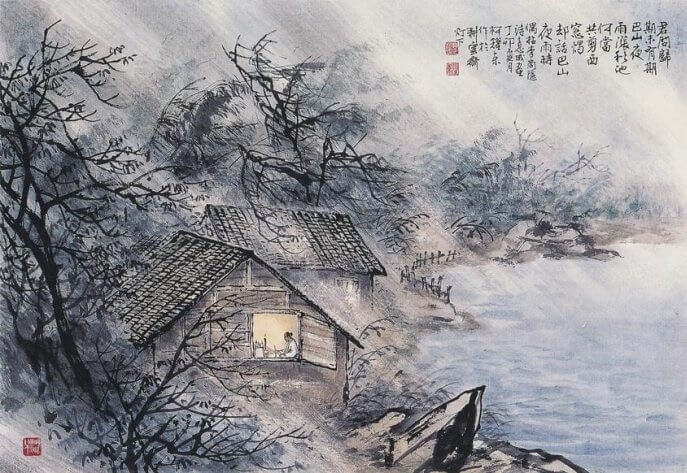Note On a Rainy Night to a Friend in the North
- Poetry of Li Shangyin
《夜雨寄北》

English Translation
You ask me when I am coming. I do not know.
I dream of your mountains and autumn pools brimming all night with the rain.
Oh, when shall we be trimming wicks again, together in your western window?
When shall I be hearing your voice again, all night in the rain?
Seven-character-quatrain
Li Shangyin was in today’s Sichuan Provence, serving as the governor’s advisor when he wrote this poem. The poem was written after Li Shangyin’s wife died, but it is possible that he had not received word of her death yet. It is also possible that he knew of her death, but chose to express his grief in a longing, imaginary letter to her.
中文原文( Chinese )
君问归期未有期,巴山夜雨涨秋池。
何当共剪西窗烛,却话巴山夜雨时。
Pre: To One Unnamed V
- Why Chinese poems is so special?
- The most distinctive features of Chinese poetry are: concision- many poems are only four lines, and few are much longer than eight; ambiguity- number, tense and parts of speech are often undetermined, creating particularly rich interpretative possibilities; and structure- most poems follow quite strict formal patterns which have beauty in themselves as well as highlighting meaningful contrasts.
- How to read a Chinese poem?
- Like an English poem, but more so. Everything is there for a reason, so try to find that reason. Think about all the possible connotations, and be aware of the different possibilities of number and tense. Look for contrasts: within lines, between the lines of each couplet and between successive couplets. Above all, don't worry about what the poet meant- find your meaning.